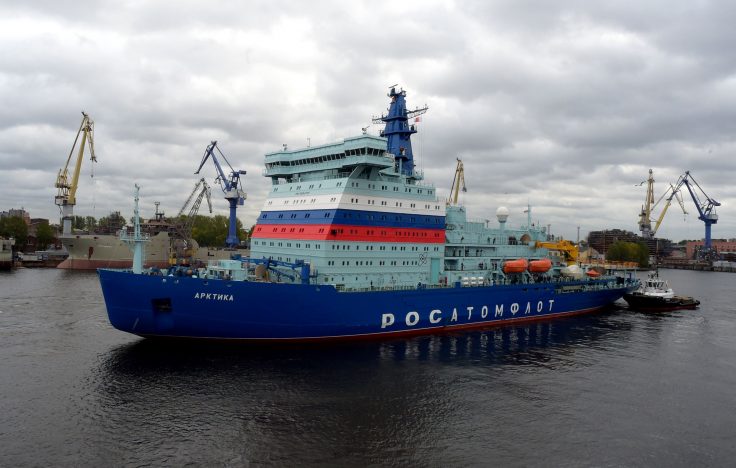Georgy Poltavchenko, the former governor of St. Petersburg and board chairman for Russian shipbuilding giant United Shipbuilding Corporation, proclaimed Tuesday that "the arctic is ours" as Moscow launched its new flagship nuclear-powered icebreaker, CBS News reported.
"This wonderful ship, this vessel, in the nearest future will every day corroborate our sovereignty in the northern territories of the Arctic Ocean," Poltavchenko said of the icebreaker. "Russia's Arctic attracts many who are interested in its resources. But the Arctic is ours, and we've proved it."
The floating colossus, called the Arktika, is set to patrol large swathes of icy water that normally outfitted ships are unable to traverse. The ship is a civilian vessel, but is operated by a Russian state-owned enterprise that has described the ship as the most powerful icebreaker in the world.
Named after a Soviet vessel, the ship marks a major milestone in Russia's effort to seize Arctic choke points for its own purposes.
In recent years, the competition for influence in remote waters within the Arctic Circle has become a hotbed of geopolitical competition. Citing this competition, the United States Air Force unveiled a strategy for the Arctic earlier this year.
"One of my top priorities is ensuring the Arctic region is a national priority," Senator Lisa Murkowski (R., Alaska) said in July in praise of the strategy.
Some in Washington worry about current American readiness in the region. Russia and China have increased cooperative capacities in the Arctic, countering America’s own reach.
With only one outdated icebreaker and no Arctic ports capable of housing icebreaker ships, the Trump administration unveiled in August a new roadmap toward creating an American icebreaker fleet to close the gap in capabilities with Moscow and Beijing.
A 2012 U.S. Energy Information Administration report noted that 13 percent of the world’s undiscovered oil reserves are located in the Arctic, along with up to 30 percent of the world’s undiscovered conventional natural-gas resources.
